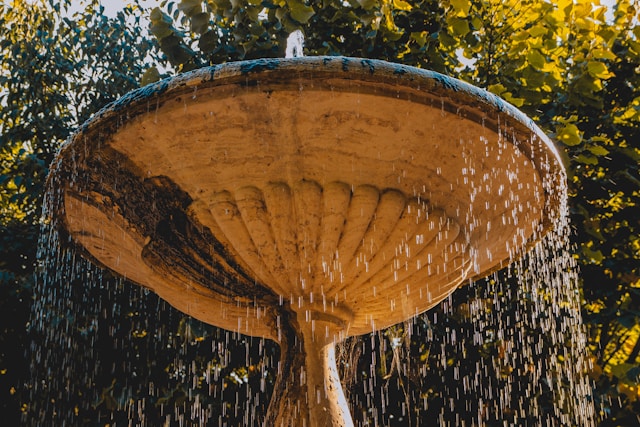

· By Brooke Hamilton-Benjestorf
Thoughts on slowing down. Part 2.
On a criminally hot day a handful of summers ago, when I was the mother of a toddler and an infant - a uniquely breath-taking and challenging moment of life - I was losing my grip. I texted a friend in desperation, probably something about putting my three-year-old up for sale or whether she thought I would survive the waking hours. She texted back: Find water. Desperate for any glinting nugget of advice that would save me from feeling entirely unhinged, I packed up the car and the kids and drove to the muddy lake near our house. And truly, as soon as our tender toes touched that chilled, murky water, everything dissipated. The water cooled my skin, my anger, my young-mother insecurities (which were surely at the heart of my anger), and the boys’ tiny-human-varieties of madness. It all just washed away - the water took it.
Since then, I’ve learned that this is actually a common piece of advice for parents of young children, that water has a calming effect on all of us. Now, slightly more seasoned in the parenting game (though flailing regularly none-the-less) we spend most of the summer in the water. Pools, lakes, buckets in the backyard. We submerge, we let it rain, we drink it up. And it saves us from ourselves.
There is solid scientific reasoning for this, as water has an enormous impact on our brains. It prompts our parasympathetic nervous systems, freeing our brains from overstimulation. And I can say confidently that at this early-parenting crossroads of my life, overstimulation was a near-constant companion. This secret to sanity, which is not a secret at all, has become a soothing tool in my back pocket. The power of water on our psyches is so pronounced that drinking a glass could do the job. But it can be so much more blissful than that. What are some ways we can utilize the water that is available to us to heal and calm our nervous systems and connect with nature?
The sound of water alone has an enormous impact on our brain activity. Everything from a stone fountain in a courtyard to sitting on the ocean shore and closing your eyes, will bring your blood pressure down. But if you can, get in. If you’re able to submerge into a cool pool, a chilling ocean current, or even a bathtub, you’ll feel it all the more. The National Institutes of Health tells us that regularly swimming in cool water “has positive effects on mental health and wellbeing, such as reducing fatigue, improving mood, and lessening depressive symptoms.”
Unfortunately, clean water is a major political topic in today’s world. Humans have this maddening way of making everything political, and water has fallen into this ever-extending net. Because it’s poisoned, it’s scarce, and it’s wasted. By us. When we’re rushing through our days, focused on productivity and 401k’s and the wrinkle counts on our (appropriately) aging faces, we forget to protect that which is most important to us, vital for our well-being physically and mentally. So, please, next time you’re standing with your toes in the sand looking out to infinity, whisper thank you. Next time you purchase a hygiene product, think about what ingredients will travel down the drain, through the pipes, and ultimately, into the water cycle. Next time you’re doing the dishes, turn the tap off in between rinses. It is these small acts of respect that speak such volumes.
As we step into the warmer months of the year (thank-you-baby-jesus) let’s nurture a practice of gratitude for the natural remedies, the deep magic in the elements within and without us that our Earth Mother graciously offers. No one owns water, despite presumptuously typed-up deeds and toxically-overblown egos. It is however there for us, to drink, to float in, to protect.
Photo by Claudio Carrozzo on Unsplash